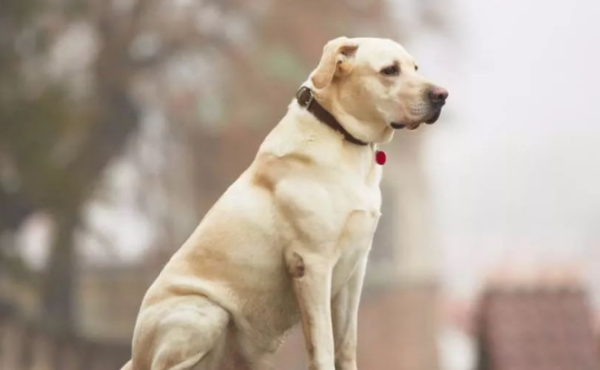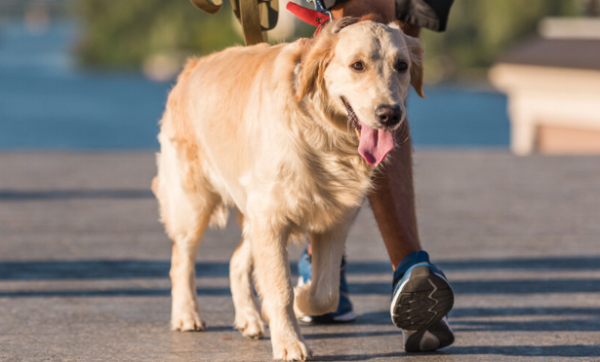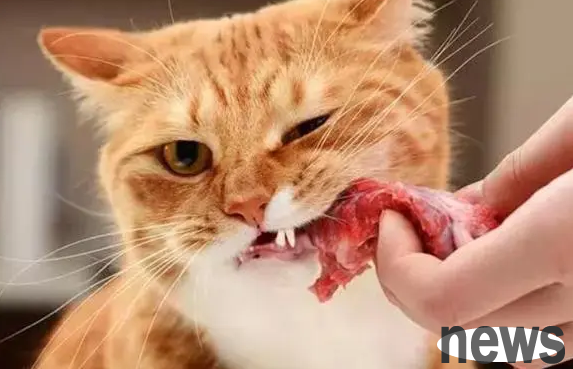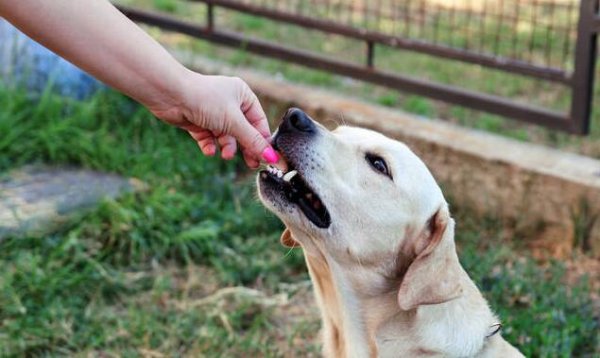How to prevent dogs from being picky about food? The top ten magic tricks will tell you!
Do your dog often doesn’t interest in food or only eat what you like, which makes you a headache?
Picky eaters not only affect nutritional balance, but may also be a signal of physical or psychological problems.
So, how can you prevent dogs from being picky about food and restore their normal appetite?
Today, I will share with you the top ten tricks to make your dog eat happily and grow up healthily!
The magic trick 1: Check the dog's health
If your dog suddenly becomes picky in food or refuses to eat anything, it may be because it is sick.
A dog's decreased appetite may be a symptom of many diseases, such as cancer, infection, pain, liver or kidney problems.
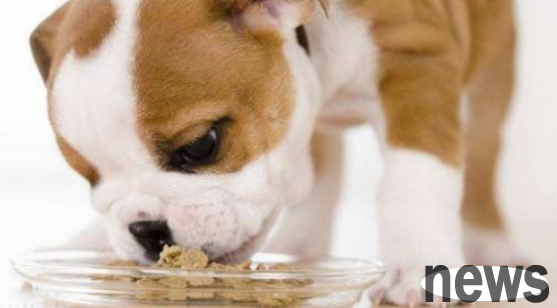
Therefore, you should take your dog to the veterinary and do a comprehensive examination to rule out any potential health problems.
If the dog is picky about food because of illness, then after the condition is cured, its appetite will return to normal.
The magic trick 2: Check the oral condition of the dog
Sometimes, the dog is unwilling to eat, because there is a problem with the oral cavity, such as rupture, looseness, inflammation, or tumors in the oral cavity.
These problems can cause pain to the dog and affect its ability to chew and swallow.
You should check your dog's mouth regularly to see if there are any abnormalities such as foreign objects, redness, swelling, bleeding, etc.
If you find any problem, you should take your dog to the veterinarian as soon as possible for treatment or cleaning.
If the dog's oral problems are solved, it will be more willing to eat.
The Three Magical Tactics: Adjust the dog's dietary habits
The reason why some dogs are picky about food may be because you have developed bad eating habits for it.
For example, you often give it human food, or give it too much changes in food, making it lose interest in its own dog food.
You should try to avoid giving your dog human food, as these foods may be harmful to its health and will also make it picky.
You should also choose a dog food that suits it, maintain a certain degree of stability, and do not change brands or flavors frequently.

You should also set a fixed feeding time for your dog, only give it a certain amount of portion at a time, and do not allow it to eat food anytime, anywhere.
If it is not finished within the specified time, you should take away the food until the next feed.
In this way, you can let your dog develop a good diet and increase its appetite.
The Four Magical Tricks: Improve the dietary environment of dogs
Some dogs may become picky in food because their dietary environment is uncomfortable.
For example, it may not like the place where you eat is too noisy, too crowded, too high or too low, etc.
You should provide your dog with a quiet, clean and comfortable eating space so that it can concentrate on enjoying its own food.
You should also choose a suitable food bowl for your dog, depending on its size and shape, so that it can easily eat food without causing it to feel uncomfortable or painful.
You should also regularly clean your dog's food bowl to keep it hygienic and avoid bacterial growth.
If your dog's diet improves, it will eat more happily.
The magic trick 5: Increase the amount of exercise of dogs
Some dogs may become picky in eating because of lack of exercise.
Exercise not only helps the dog consume excess energy, but also promotes its metabolism and increases its appetite.
You should take your dog out for walks, play, training, etc. every day to keep it in a moderate amount of exercise and not make it lazy or obese.
You can also give your dog some exercise chances before or after feeding, so that it feels hungry or satisfied.
You can also combine feeding with games, such as using some toys that can hold food, allowing your dog to get food by solving problems or chasing, increasing its interest and challenges.
If your dog's exercise increases, it will become hungry and more willing to eat.
The Sixth Trick: Adjust the diet of dogs
Some dogs may become picky in food because their diet is not appropriate.
For example, it may be allergic to certain foods, intolerant, or have no interest or boredom in certain foods.
You should choose a dog food that meets its nutritional needs based on your dog's age, weight, breed, vitality, etc., and do not give it some food that is not suitable for it.
You should also pay attention to your dog's reaction to food to see if it has any symptoms such as allergies, discomfort, indigestion, etc. If so, you should change the food in time or consult a veterinarian.
You can also give your dog some dietary changes appropriately, such as adding some fresh fruits, vegetables, meat, etc., or using some natural seasonings to make its food more delicious and diverse.
If your dog's diet is adjusted, it will be more satisfying and healthy.
The Seventh Trick: Reward the dog's eating behavior
Some dogs may become picky in eating because of lack of positive stimulation.
For example, it may not feel your concern, praise, encouragement, etc. for it, or it may not get your attention, companionship, play, etc.
You should give your dog some positive feedback when eating, so that it knows that you are happy that it eats well and cares about its health.
You can also give your dog some small rewards after eating, such as some healthy snacks, toys, hugs, etc. to make it feel satisfied and happy.
You can also talk, interact, play, etc. with your dog while eating, so that it feels that eating is an interesting and pleasant thing, not a boring and distressing thing.
If your dog's eating behavior is rewarded, it will be more willing to eat.
The magic trick 8: Reduce dogs' stress and anxiety
Some dogs may become picky in their diet because they are under some stress and anxiety.
For example, it may feel uneasy, fear, nervous, etc. due to changes in the environment, departure of the owner, threats from other animals, etc.
You should try to provide your dog with a safe, comfortable and stable living environment so that it can adapt and relax.
You should also try to avoid causing unnecessary stress and stimulation to your dog, such as excessive punishment, ridicule, threat, etc., or letting it contact some people or animals it does not like.
You can also give your dog some ways to relieve stress and anxiety, such as some soothing music, massage, aromatherapy, etc., or consult a veterinarian and use some safe medications or supplements.
If your dog has less stress and anxiety, it will be more relaxed and happy and more appetizing.
The magic trick 9: Respect the dog's personality and preferences
Some dogs may become picky in food because you do not respect their personality and preferences.
For example, it may not be a gluttonous dog itself, or it has a special preference or dislike for certain foods, etc.
You should understand your dog's personality and preferences, and don't force it to eat what you think is good, or not let it eat what it likes.
You should also respect your dog's choices, do not force feed it, or use some violent or threatening methods to make it feel scared or uncomfortable.
You should also give your dog some freedom and space so that it can enjoy its own food at its own pace and way, without interrupting or disturbing it.
If your dog's personality and preferences are respected, it will trust and be closer to you and be more willing to eat.
The 10th magic trick: Seek professional help
If you tried the above nine magic tricks, but your dog still did not improve, or became more serious, it may be because it has some deeper problems and needs to seek professional help.
For example, it may have some psychological or behavioral disorders, or some difficult-to-discover physical diseases, etc.
You should take your dog to the veterinarian in time for some more detailed examinations and diagnosis, find out the real reason for his picky eating, and give him some appropriate treatment or advice.
You should also seek help from some professional dog trainers or behaviorists to give you some guidance and advice on how to improve your dog's eating habits and behavioral problems.
You should also maintain a positive and patient attitude and not give up on your dog, believing that it can overcome the problem of picky eating and return to normal life.
If your dog gets professional help, it will be healthier and happier and loves to eat more.


